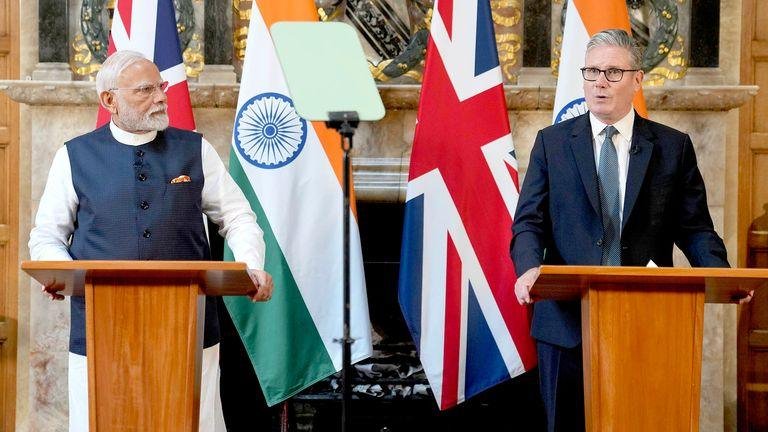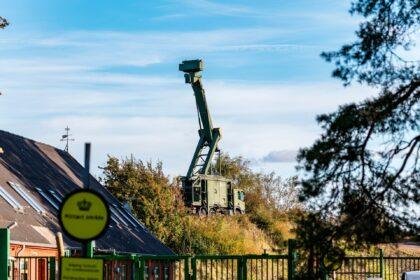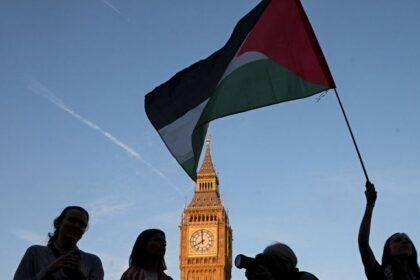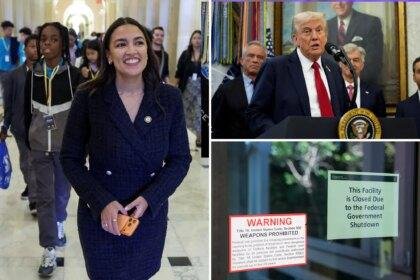Sir Keir Starmer Leads Major Trade Mission to India Amid Economic Challenges
In a significant diplomatic and economic initiative, Sir Keir Starmer has embarked on the first comprehensive trade mission to India since the tenure of former Prime Minister Theresa May. This ambitious trip, which includes 125 prominent UK business leaders, entrepreneurs, and university representatives, aims to strengthen the economic ties between the United Kingdom and India. The delegation arrived in Mumbai, a bustling financial hub, to explore new opportunities for collaboration and investment.
A High-Profile Delegation
Starmer’s entourage features executives from major corporations such as British Airways, Barclays, Standard Chartered, BT, and Rolls-Royce. The mission is strategically timed to coincide with the Conservative Party conference, where Kemi Badenoch, the Secretary of State for Business and Trade, is set to address party activists in Manchester. This juxtaposition highlights the ongoing political dynamics within the UK, as Starmer seeks to position the Labour Party as a viable alternative in the face of economic uncertainty.
Meeting with Prime Minister Modi
One of the key highlights of the trip will be Starmer’s meeting with Indian Prime Minister Narendra Modi. This encounter comes just five months after the UK and India signed their first trade agreement post-Brexit, a deal that has yet to be fully implemented. The agreement includes contentious provisions, such as proposals to waive national insurance for workers from large Indian firms operating in the UK, which are still under consultation.
Starmer expressed his commitment to enhancing UK-India relations during a press briefing on the flight to Mumbai. He emphasized the importance of fostering business relationships and attracting investment, stating, “The issue is not about visas. It’s about business-to-business engagement and investment and jobs and prosperity coming into the United Kingdom.”
Visa Controversies and Business Concerns
Despite the optimism surrounding the trade mission, Starmer has faced criticism from some business leaders regarding the visa situation. Many CEOs on the trip had hoped for an increase in the number of visas available for skilled workers, but Starmer has firmly rejected these requests. He reiterated that the visa framework remains unchanged under the new trade agreement, emphasizing that the focus should be on broader economic engagement rather than individual visa policies.
This stance reflects a growing tension between the need for skilled labor in the UK and the government’s immigration policies. The UK has been grappling with labor shortages in various sectors, and the reluctance to expand visa options could hinder the country’s economic recovery.
Navigating Geopolitical Tensions
Starmer’s mission also comes at a time of heightened geopolitical tensions, particularly concerning India’s relationship with Russia. Modi’s recent social media post wishing Russian President Vladimir Putin a happy birthday has drawn scrutiny, especially in light of the ongoing conflict in Ukraine. When questioned about this issue, Starmer chose to sidestep the topic, focusing instead on the UK’s efforts to combat Russian energy influence through initiatives targeting the so-called “shadow fleet”-a term used to describe vessels that evade sanctions.
Starmer’s reluctance to engage directly with Modi’s ties to Russia underscores the delicate balance that UK leaders must maintain in their foreign relations. The UK has been a vocal critic of Russia’s actions, and any perceived leniency towards Moscow could have domestic political repercussions.
Economic Outlook and Taxation Concerns
As the trade mission unfolds, the economic landscape in the UK remains fraught with challenges. Starmer has been cautious in addressing the potential for tax increases in the upcoming budget, despite acknowledging the impact of previous fiscal measures on businesses. He stated, “I’m not going to make any comment about the forthcoming budget, as you would expect; no prime minister or chancellor ever does.” This statement reflects a broader trend in political discourse, where leaders often avoid making definitive statements about future economic policies to maintain flexibility.
The UK economy has been under pressure from various fronts, including inflation, rising energy costs, and labor shortages. Starmer’s administration is tasked with navigating these challenges while also fostering a favorable environment for business growth. The trade mission to India represents a proactive approach to securing new markets and investment opportunities, but it remains to be seen how effective these efforts will be in the long term.
Conclusion
Sir Keir Starmer’s trade mission to India marks a pivotal moment in UK-India relations, aiming to bolster economic ties and attract investment. However, the complexities of visa policies, geopolitical tensions, and domestic economic challenges loom large over the initiative. As Starmer engages with Indian leaders and business executives, the outcomes of this mission could have lasting implications for the UK’s economic landscape and its position on the global stage. The success of this endeavor will depend not only on the agreements reached but also on the ability to address the underlying issues that continue to affect the UK economy.










